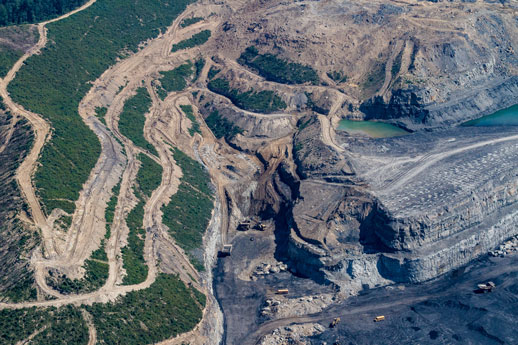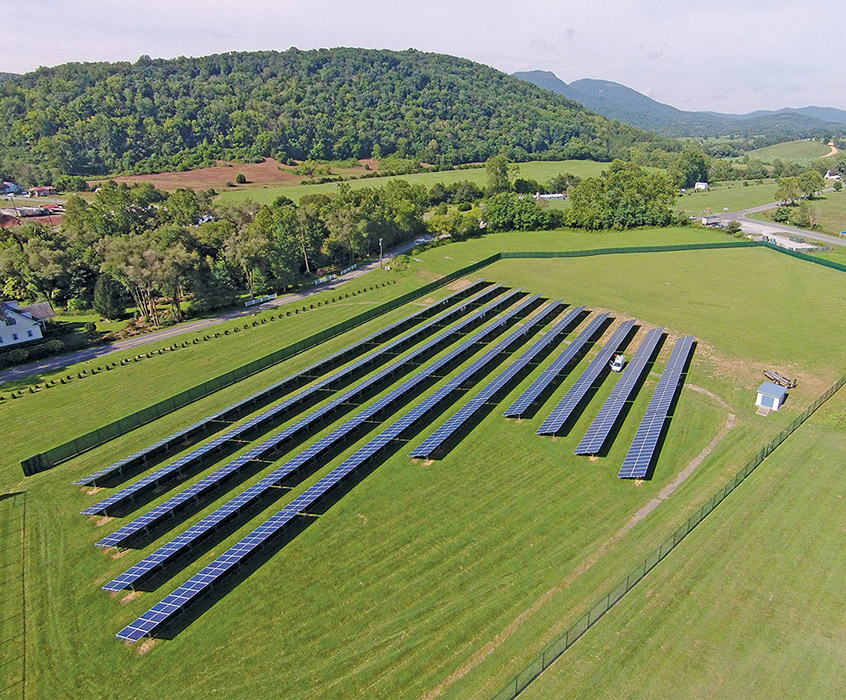Cleaning Up Coal Ash
For well over a century, power plants across the country have burned coal to generate electricity. And for just as long, leftover coal ash has been dumped in open, unlined pits near the power plant, usually located on a river or lake. Every year, U.S. power plants produce 130 million tons of coal ash, which is the second largest waste stream in the country after municipal garbage.
Coal ash concentrates the toxic heavy metals found in coal, including arsenic, mercury, lead and selenium. Stored in unlined, wet impoundments, coal ash has been leaking these toxics into our groundwater and surface waters for years. Sometimes these impoundments collapse — with disastrous results.
Yet government regulations for coal ash management are either non-existent or sparse, and there is little enforcement of the regulations that do exist. In North Carolina, this lack of oversight — and the complicity between state regulators, elected officials and Duke Energy — came to a boiling point in February 2014 when one of Duke’s coal ash impoundments spilled 39 million tons of ash into the Dan River.
Citizens living near North Carolina’s 33 coal ash impoundments — all of which have leaked — have fought for transparency from Duke and the state, and for cleanup of the pollution that threatens their property value, health and family. Their actions forced this issue into the headlines of news networks and to the forefront of environmental justice conversations in the United States.
Appalachian Voices stood with these communities as we worked for years to compel Duke Energy and the N.C. Department of Environmental Quality to excavate coal ash from all the North Carolina sites and dispose of it either in lined, dry landfills, away from waterways, or by recycling it for concrete or other uses, provided it’s done in a manner that protects public health and the environment.
On Jan. 2, 2020, North Carolina announced a historic settlement with one of the state’s most powerful corporations and polluters, Duke Energy. The settlement requires Duke to move nearly 80 million tons of toxic coal ash at six of its power plants to properly lined landfills onsite or recycle it.

Learn information about specific coal ash impoundments in the South, including health threats and safety ratings:
Additional Resources
Fact sheets, videos, links to academic research, and more
Sign Up to Act
Help us protect the health of our communities and waterways.
Latest News
The “Fox Guarding the Henhouse” cabinet
Many of Donald Trump’s Cabinet appointees take positions that threaten public health, air and water quality, and our natural heritage, and that accelerate climate change. Appalachian Voices is joining with clean energy advocates, climate activists and public health proponents across the country in urging the Senate to stand for our health and environment and reject these nominees.
Congress takes aim at stream protections
In December, the Obama administration released the final Stream Protection Rule knowing it would be a likely top target for the incoming Republican-controlled Congress. And it is, indeed, in the crosshairs — but members of Congress should understand they’re gambling with Appalachia’s health and economic future, all for a risky bet on coal’s unlikely comeback.
Aww shucks, y’all …. thanks!
We’re doing a little victory dance today! Blue Ridge Outdoors’ readers voted Appalachian Voices the Best Environmental Organization in 2016. Aww shucks — thanks everyone. We’re committed to living up to the honor in 2017, and beyond.
Zach Galifianakis’ “Democracy for Sale” screens in North Carolina
A new documentary by Zach Galifianakis digs into how North Carolina has been transformed by the growing tidal wave of political spending. Screenings of “Democracy for Sale” will take place in numerous North Carolina towns throughout January and February.
Gov. Cooper nominates new environmental secretary
Gov. Roy Cooper has appointed Michael Regan as the next secretary of the N.C. Department of Environmental Quality. Regan pledged to develop greater transparency at the agency. That alone could signal a shift from the prior DEQ leadership’s approach to public engagement on environmental issues.
Rural electric co-ops invest in community solar
Community solar is a cooperative alternative to installing solar panels on an individual residence. Several rural electric cooperatives in Appalachia are now providing this option for their members who want to use renewable energy.











